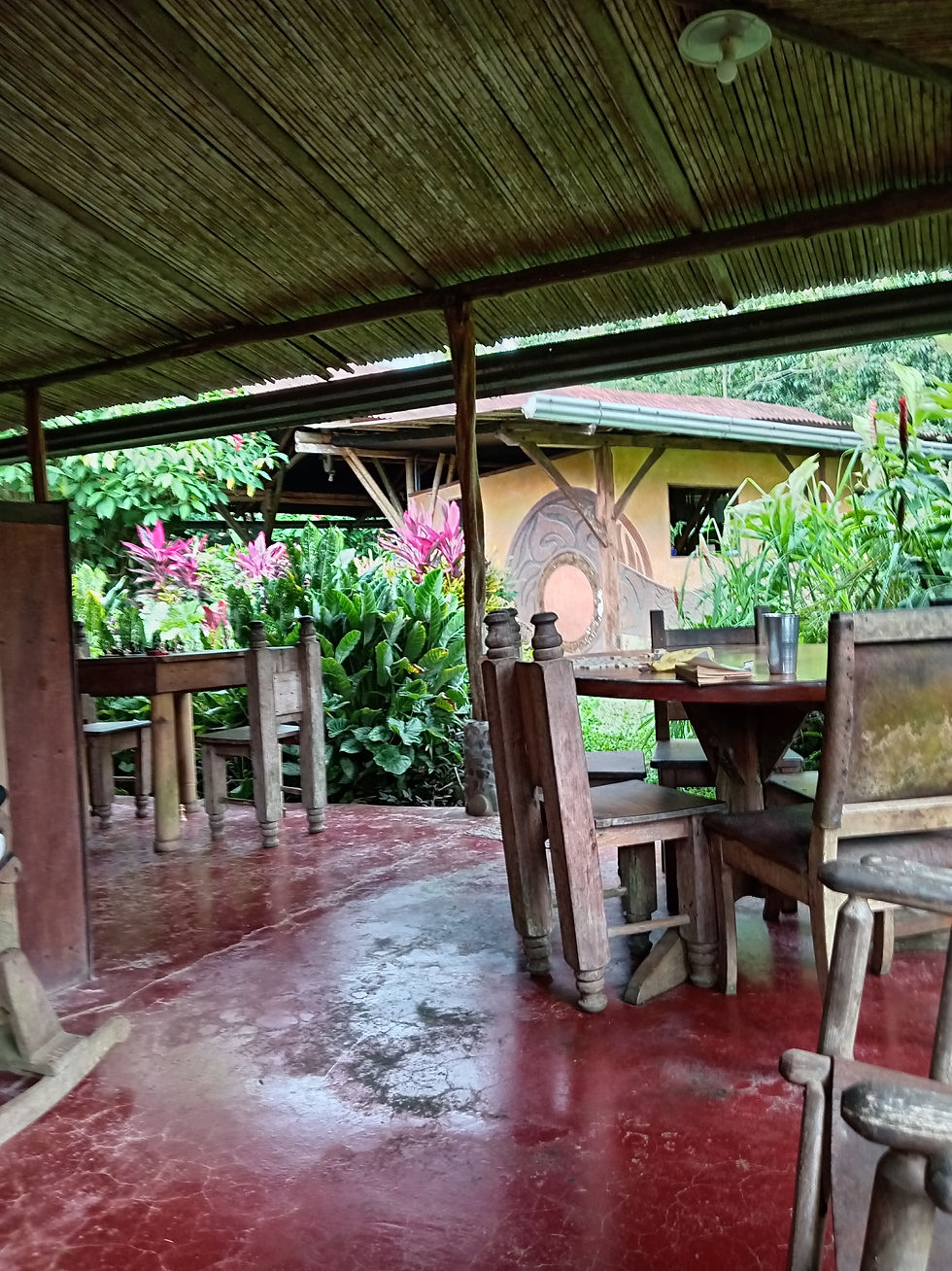Trans Life: Accessing Hormones and Puberty Blockers in Costa Rica
- Dani G
- Jun 21, 2025
- 4 min read
Costa Rica is one of Central America’s more progressive countries when it comes to LGBTQ life. That said, there are still some challenges for trans individuals. While the country allows name and gender marker changes on official documents and provides limited coverage for transgender healthcare under its public health system, gender-affirming medical care isn't always easy to access. Learn more about what to expect in regards to accessing hormone and puberty blockers in Costa Rica. Find out how you can get the gender-affirming healthcare you or your child deserve.
Overview of Healthcare in Costa Rica
Costa Rica's public health system, or “la Caja,” is the main healthcare system for most Costa Ricans. In 2018, the Supreme Court, the country began to allow transgender folks to change their gender marker on identification documents without undergoing surgery. Because of this, there is some support within the country for trans individuals.

In terms of medical care, CCSS has started to integrate transgender healthcare services in some parts of the country. For the most part, larger cities like San Jose offer some access to hormone replacement therapy (HRT). Estrogen, testosterone, and certain anti-androgens are available in certain areas. However, access is not uniformly available across the country. Some gaps remain in rural areas and smaller towns.
Puberty blockers, which often used for transgender youth to delay the onset of puberty while they explore their gender identity, are more difficult to access and are not routinely offered under public insurance. Private healthcare is often the only viable route for obtaining puberty blockers in Costa Rica, which poses financial and logistical challenges for families.
Accessing Hormones Through the Public Healthcare System
For adults seeking hormone replacement therapy through the CCSS, the first step is typically to consult a general practitioner at a public clinic. They may then be referred to an endocrinologist, psychologist, or psychiatrist who is familiar with gender dysphoria and trans health needs. Once the diagnosis of gender dysphoria is established, patients can start their hormone treatment.
However, there are several barriers to this route:
Long wait times: Due to a limited number of specialists and growing demand, trans individuals often face long delays before seeing an endocrinologist.
Gatekeeping: Some providers still rely on outdated models of care that require excessive psychological evaluations before approving hormone therapy.
Lack of provider training: Not all medical professionals in the public system know about transgender health needs, which can result in misinformation, inappropriate care, or outright discrimination.
Despite these challenges, trans individuals have successfully navigated the public system. You may be able to get support from trans-affirming NGOs and community health advocates.
Private Healthcare Options
For those who can afford it, Costa Rica's private healthcare system offers a more direct and sometimes faster route to HRT. Private endocrinologists and clinics in San José and other major cities, like Heredia and Alajuela, may prescribe hormones without the psychological gatekeeping sometimes seen in the public system.

Some private clinics operate with an informed consent model, allowing trans adults to begin HRT after understanding the risks and benefits without needing a mental health diagnosis. These clinics may also provide lab testing and regular follow-ups.
Puberty blockers, such as GnRH analogs, are more commonly found in private healthcare settings. However, they are very expensive, with costs sometimes exceeding $500 per injection. Additionally, only a few pediatric endocrinologists in the country are willing to prescribe them for gender dysphoria, and many parents must advocate heavily for their child's needs.
Pharmacies and Self-Medication
In Costa Rica, some hormone medications can be purchased directly at pharmacies, though this can be very dangerous. For example:
Estrogen (such as estradiol valerate or estradiol patches) and anti-androgens (such as spironolactone or cyproterone acetate) may be available over the counter in certain pharmacies, though not all locations carry them.
Testosterone (typically as injectable testosterone enanthate or cypionate) is also available in some pharmacies but usually requires a prescription.
Self-medicating without medical supervision could come with consequences. Hormones affect numerous bodily systems and must be carefully monitored with blood tests to ensure safe and effective treatment. Moreover, taking incorrect doses or combining medications inappropriately can result in serious health complications.
Many trans people resort to self-medication due to barriers in the formal healthcare system, but it is always a good idea to seek medical oversight when possible—even if it's through a trusted private practitioner.
Supportive Organizations and Community Resources
Several Costa Rican organizations support trans individuals by helping them navigate healthcare access, legal name changes, and mental health resources. Some of the most active and respected include:
TransVida: A trans-led organization that offers advocacy, peer support, and referrals for medical services.
Mulabi: A human rights group focused on sexual diversity and gender identity across Central America, including Costa Rica.
Asociación Esperanza Viva: Provides health-related information, legal support, and social services to LGBTQ+ communities.
These organizations often maintain informal networks of trusted doctors, clinics, and pharmacists that are knowledgeable and affirming toward trans people. They also provide critical assistance in navigating public bureaucracy and securing essential services.
Recommendations for Trans People Seeking Hormones or Blockers

Start with Community Organizations: Connecting with trans-led groups is often the best first step. They can help with referrals and offer emotional support.
Explore Public and Private Options: Depending on your location and financial situation, one system may be more accessible than the other. Some trans people use a combination of both.
Be Prepared for Gatekeeping: Bring documentation, research, and possibly advocate for yourself or bring someone with you for appointments.
Use Informed Consent Clinics If Available: These clinics prioritize autonomy and reduce psychological hurdles.
Avoid Unsupervised Self-Medication When Possible: While common, it can be risky. Seek regular bloodwork and medical guidance if you take this route.
Engage with Online Communities: Costa Rican trans forums and social media groups often share up-to-date information on friendly providers and pharmacy availability.
How Rainbow Refuge Can Help
While Costa Rica is making progress toward recognizing and supporting transgender individuals, the path to accessing hormones and puberty blockers remains uneven. Fortunately, we at Rainbow Refuge have experience and resources helping trans folk. If you need hormones or puberty blockers in Costa Rica for kids or adults, contact us. We can point you in the right direction.



Comments